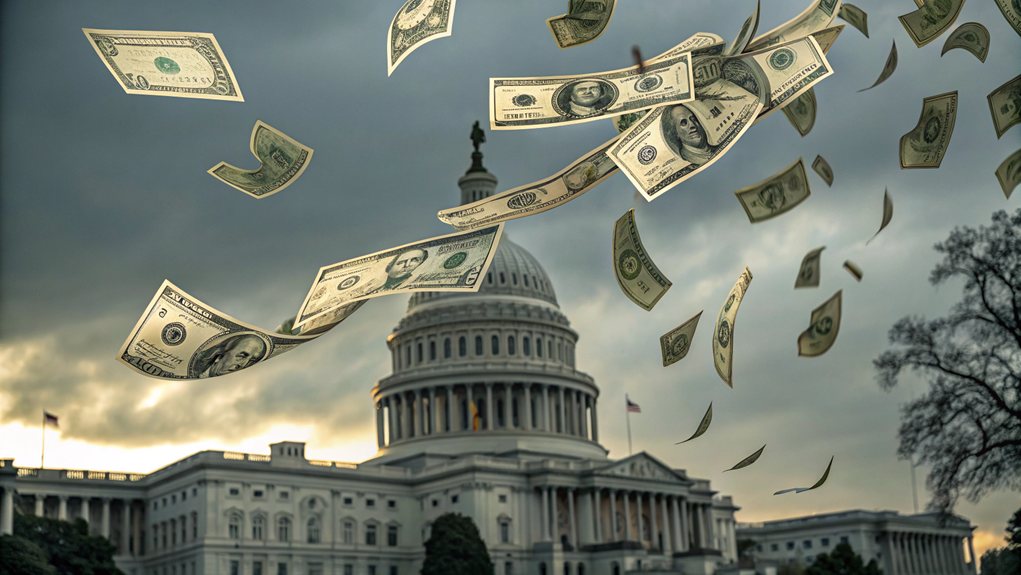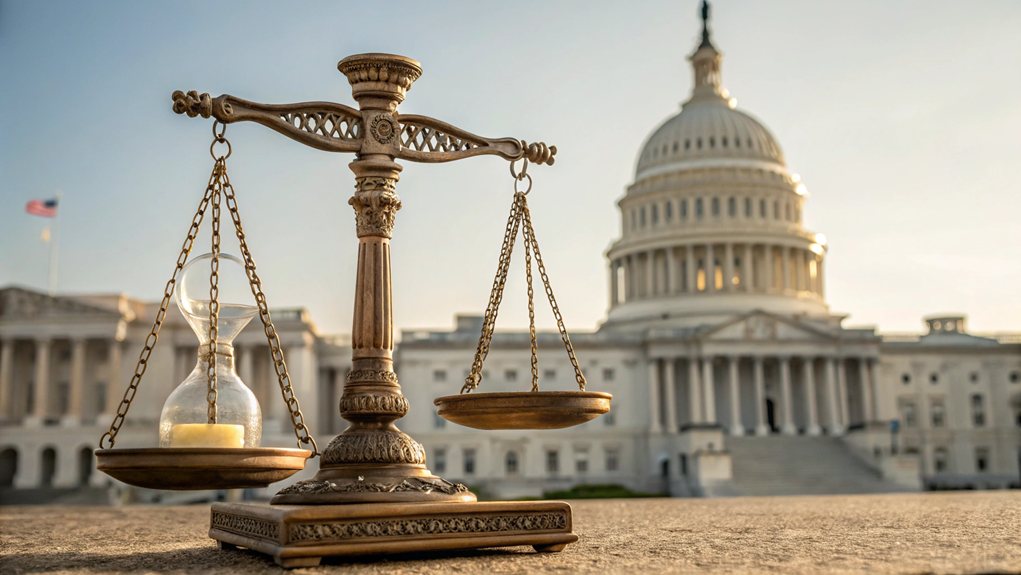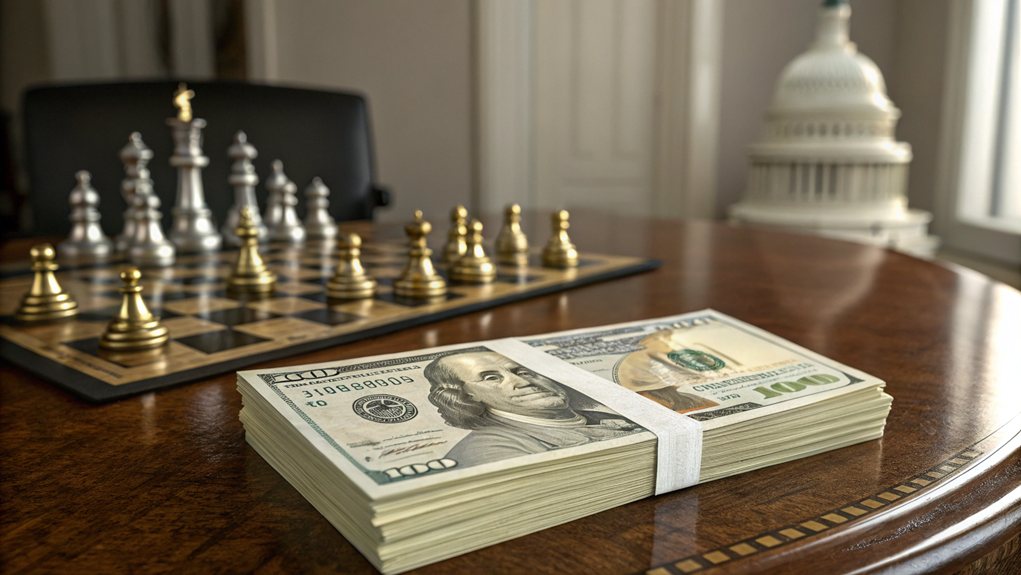Political Action Committees (PACs) are major players in American politics. They raise and spend cash to back candidates or causes, often shaping what voters see and hear. From supporting presidential re-election bids to funding ads, they wield significant power. The rise of Super PACs means there's no cap on funds, making it rain in campaigns. It's a money game, folks, muddying the waters of democracy. Curious how this mess impacts political integrity? Stick around.

In a world where money talks, Political Action Committees (PACs) have become the loudest voices in American politics. Established back in 1944 by the Congress of Industrial Organizations (CIO), the first PAC aimed to support President Franklin D. Roosevelt's re-election. Fast forward to today, and PACs have multiplied like rabbits, raising and spending cash to elect or defeat candidates, all in the name of various interests—be it business, labor, or ideology. Not exactly the grassroots democracy one might hope for.
These groups operate under a legal framework provided by the Federal Election Commission (FEC). They must adhere to contribution limits and reporting requirements, though the rules vary wildly among different PAC types. Traditional PACs can contribute up to $5,000 per election but don't get too excited. Super PACs, thanks to the *Citizens United* decision, can rake in unlimited funds for independent expenditures. That's right—big money can flow in from anyone, including corporations and unions. Talk about a financial free-for-all. The role of lobbyists in navigating these financial waters cannot be underestimated, as they often collaborate with PACs to influence policy outcomes.
And then there are leadership PACs. They're set up by politicians wanting to support fellow candidates, often signaling their own ambitions. Connected PACs are tethered to specific organizations while non-connected ones roam free. Hybrid PACs? Oh, they're like a buffet—able to function as both traditional and super PACs. Who doesn't love options?
PACs have a significant impact on elections. They finance campaigns, run ads, and even fund get-out-the-vote drives. They can sway public opinion on specific issues, turning the political landscape into a battlefield of cash and influence. The result? Increased polarization. Who knew throwing money at politics could create division? In fact, PAC spending has increased dramatically from $2 billion in 2008 to over $14 billion in 2020, which reflects the growing role of grassroots PACs in supporting diverse candidates.
With the FEC keeping a watchful eye, PACs must disclose their finances, even if some contributions stay cloaked in anonymity. Reform efforts are ongoing, but for now, the money just keeps talking—and boy, does it have a lot to say.
Frequently Asked Questions
How Do PACS Differ From Super PACS in Funding?
PACs and Super PACs? Totally different ballgames.
Traditional PACs have strict contribution limits—think of them like a budget-conscious friend. They can directly donate to candidates.
On the flip side, Super PACs are the wild child. No limits, no problem! They can rake in cash from anyone—individuals, corporations, you name it.
But, they can't donate directly. They just spend big on ads.
What Are the Legal Limits on PAC Contributions?
Legal limits on PAC contributions can be a bit of a maze.
Traditional PACs can toss $5,000 at a candidate per election. Not too shabby, right? They can also drop $15,000 on national party committees annually.
Super PACs? They're the wild cards—spend as much as they want on ads but can't directly donate to candidates.
It's a quirky system, but hey, that's politics for you. Always a game of numbers.
Can Individuals Donate Directly to PACS?
Sure, individuals can toss their cash directly into PACs, but there's a catch.
They're limited to $5,000 a year for traditional PACs. Yep, that's all you get!
And if you're thinking of donating to a connected PAC linked to a corporation or union, good luck—only certain folks can chip in.
Plus, everything is tracked by the FEC, so no sneaky business. It's all above board, folks.
Isn't politics fun?
How Do PACS Influence Voter Behavior?
PACs are like the cool kids in the political playground, throwing money around to influence voters. They fund ads, push specific issues, and can sway opinions.
Voters often see PACs as a red flag, associating them with corruption. Candidates who take PAC money might seem biased, while those who don't can appear more trustworthy.
It's a game of perception, where dollars speak louder than words, and trust hangs in the balance.
Are There Any Notable Cases of PAC Corruption?
Corruption and PACs? Oh, it's a wild ride.
Take John Doolittle's PAC—funds went to pay his wife's firm. Classy, right?
Then there's Richard Pombo, who thought it was okay to use PAC money for hotel bills and sports tickets.
Nancy Pelosi got fined for overspending, while Trump's PAC splurged on portraits.
Just a regular day in the political playground, where rules are more like guidelines. Who needs ethics anyway?








